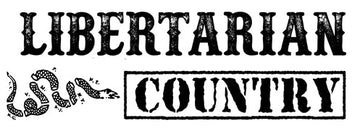Not all signs point to yes. Some signs command obedience from those who read them: stop signs, no-smoking signs, no trespassing signs, no-parking signs--you get the idea.
Once acknowledged, signs have a remarkable power over people. They often plan to do something but stop once they see one. "Sign says no fishing here," the fisherman might say to his son as they approach the new public pier. "Rats," he says, packing his gear to find a different spot.
The sign even has power over the rebel. "Oh man, no skateboarding here," a kid says to his rebel friend. "Yeah, okay," the rebel skater says with a chuckle. He grabs his board and ollies up on the sidewalk, reveling in his defiance.
He didn't obey the sign, but it still had power over him. The sign's authority had to be questioned and rebelled against. Satisfaction, bliss and bragging rights were his rewards.
Signs have a mysterious, inexplicable power and authority, sometimes more than if someone handed down the rule in person.
Here's a fun story.
I worked for a Fortune 500 LTL trucking company years ago. At the end of every shift, the dock guys stacked decking beams on a load table to be loaded on a trailer and transported to a central hub.
If there weren't any load tables left, the guys would have to neatly palletize the load beams, which took much longer (and was way less fun) than chaotically tossing them on the load tables.
You wanted the load tables. Flipped upside-down, they made an excellent platform for the decking beams. Workers would load the beams, then push the load table into an empty trailer with a forklift. Very efficient.
 What a Load Table looks Like. Photo Credit: industrialmanlifts.com
What a Load Table looks Like. Photo Credit: industrialmanlifts.com
Because the load tables were often in short supply, I had an idea. To ensure we had a load table that night, I hopped on a forklift and moved one to the far end of the dock at the start of my shift. So nobody would use it, I taped up a hand-drawn sign that read: DO NOT USE.
At the end of the shift, I saw the guys neatly palletizing the load beams (instead of having fun tossing them onto the load table). The supervisor told them not to use the load table because the sign said 'do not use.'
I explained to the supervisor why I put the sign on the load table and told him to get the guys to use it instead of wasting time palletizing the beams.
Like a deer in headlights, he stopped and stared at me. The sign had hypnotized him. The authority of the sign--even a makeshift, hand-drawn sign--loomed its power over him. He wasn't so eager to defy its authority.
I assured him I had put the sign there, but he remained frozen.
I was a respected employee who worked closely with the management team daily, yet he no longer trusted me. I created a hand-drawn paper sign more potent than my esteem and reputation.
The sign became its own entity, its own master. It was an authority that transcended human understanding. No reason or logic or rational explanation could challenge its wisdom. "Do not use." It might as well have been an edict handed down by God.
As I was talking with him, the operations manager approached. Indeed, I thought the operations manager would understand and tell the supervisor to use the load table.
I explained to the operations manager that I had put the sign on the load table and that it was OK to use. But he, too, became a deer in headlights.
Soon, the magnetism of the sign drew us closer. We walked up the dock--which had 138 bay doors--to the load table that sat there with my paper sign still taped to it.
Two grown men, befuddled, just stared at it, wondering why that sign was really there. Who had put that sign there? What penalty could befall us if we used it without permission?
They just stared, thinking, pondering in deep contemplation.
"This is insanity," I finally declared, reaching over and pulling off the paper sign. I crumpled it up and made a 3-point shot to the nearest trash can.
Suddenly, relief fell over the men. The spell of the sign had been broken. It no longer held the men captive as it lay crumpled in the trash can.
Nodding, the operations manager agreed, "go ahead and use it."
They apologized for their momentary distrust. I apologized, too, realizing that communication is imperative to any group operation and that I should've told them what I was doing at the start of the shift to avoid any confusion.
C'est la vie.
The ordeal was over, and we were all back to being friends, but the memory will live on. It was a strange event, a lesson in human psychology. Signs have a life force of their own. They wield faceless authority and uncanny power. Once a sign is observed, the onlooker may only obey or rebel.
It's much like authority in general.
Libertarian philosophers have pondered the nature of authority for years. For instance, how does one man command an entire nation? What gives him that power?
Obedience.
Authority and tyranny can only exist if the people being governed allow it to exist. Once the sign is crumpled up and thrown in the trash, it no longer has any power.
For more insight and entertainment, scroll through our Blog.


